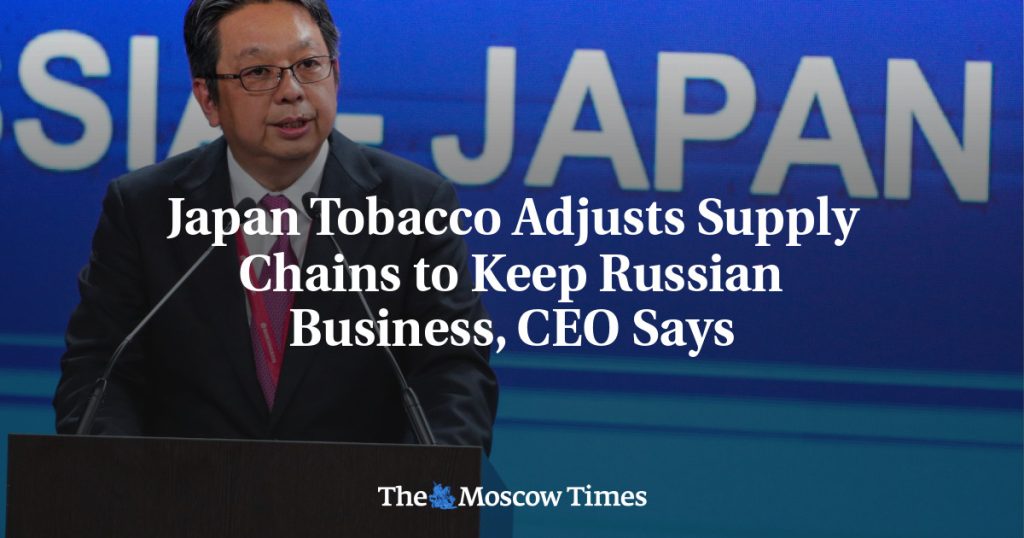Japan Tobacco has made adjustments to its supply chains in order to comply with Western sanctions against Moscow and continue operating in the lucrative Russian market. The CEO, Masamichi Terabatake, stated that the company has made efforts to ensure a ring-fence around its operations, by sending items from countries that can still trade with Russia. Various precautions have been taken to comply with sanctions, such as restricting decision-making involvement to people from friendly countries and shifting personnel to Hong Kong.
These changes, which include relocating key personnel to Hong Kong and rerouting some business through Turkey, took approximately a year to complete. Japan Tobacco had initially considered selling its Russian business in response to the conflict in Ukraine, but instead decided to suspend investment and marketing activities in Russia while maintaining four factories and over 4,000 employees. Investor scrutiny about the company’s reputation losses for continuing to trade in Russia has lessened over time, according to the CEO.
Russia is the world’s fourth-largest tobacco market and constitutes one-fifth of Japan Tobacco’s global profits, which amounted to $3 billion in 2023. Despite the ongoing conflict and Western sanctions, Japan Tobacco was one of the top earning foreign companies in Russia in 2022. However, its Russian subsidiary did not pay dividends in 2022 and 2023. While many Western companies have either exited or suspended operations in Russia since the invasion of Ukraine, over 1,300 companies are estimated to still be conducting business in the country.
Although Japan has imposed war-related sanctions on Russia, it has not reduced its involvement in Russian energy projects due to its reliance on Russian liquefied natural gas. This highlights the complex interplay between geopolitical tensions and economic interests in the region. Japan Tobacco’s adaptation to the changing political landscape demonstrates the challenges faced by multinational companies operating in conflict-affected markets and the delicate balance they must strike between compliance with sanctions and sustaining their business operations. With ongoing uncertainty surrounding the situation in Russia, the company will need to continue navigating complex geopolitical dynamics to safeguard its interests in the region.


